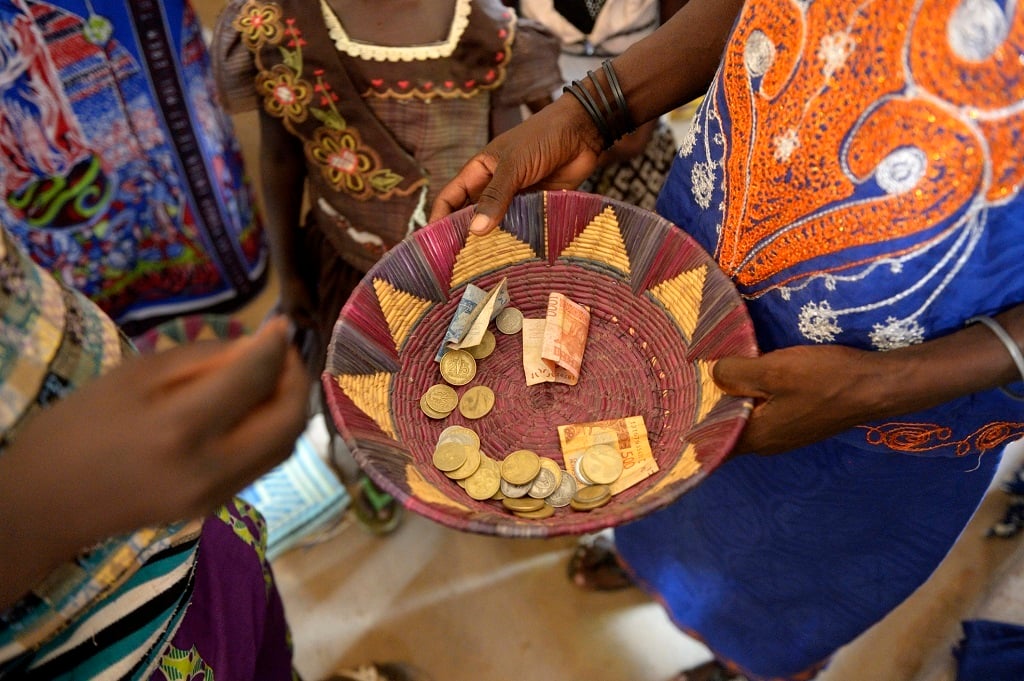
- A pan-African payment system would allow African nations to trade among themselves, using their own currencies.
- The African Export-Import Bank expects 15 to 20 countries to have joined such a system by the end of the year.
- The system, known as PAPSS, is using dollar exchange rates for now.
- For more financial news, go to the News24 Business front page.
A pan-African payment system that would allow African nations to trade among themselves, using their own currencies, is gaining momentum.
The African Export-Import Bank expects 15 to 20 countries to have joined the Pan-African Payment and Settlement System by the end of the year, Afreximbank President Benedict Oramah said in an interview ahead of the lender's annual meetings in Accra, Ghana's capital, that runs Sunday through June 21. The platform has started commercial operations with nine countries signed up so far, he said.
The system, known as PAPSS, is using dollar exchange rates for now, said Oramah, whose bank funds the system. "But we are working with central banks to develop an exchange-rate mechanism" that would allow Africa's 42 currencies to be convertible among themselves. "What we are doing is to domesticate intra-African payments," he said.
The vast majority of Africa's intra-regional trade is done through conversions to the dollar. Initiatives like PAPSS and the African Continental Free Trade Agreement, which would create the world’s largest free trade zone by area, seek to boost internal trade by reducing barriers, including the need for intermediaries such as the US dollar.
The free trade zone and the payment system are ambitious projects in a fragmented region of 54 countries, with different languages, currencies and regulations. Africans trade more outside the continent than among themselves, with just 17% of exports going somewhere else within the region, according to a McKinsey Global Institute report published this month. That excludes informal trade, which is difficult to quantify.
Africa isn't alone in looking for ways to break its dependency on the US currency; there's been a de-dollarization push across emerging markets, including India's efforts to clear trade through the rupee, Sweden's SEB AB said in a May 2 note. China and Malaysia have played with the idea of an Asian Monetary Fund, while Brazil and Argentina announced a project for a common currency called the "sur".
These alternatives are unlikely to unilaterally dethrone the dollar as the global reserve currency, SEB Chief EM strategist Erik Meyersson wrote, without referring to PAPSS. But if emerging markets "are instead more interested in simply reducing their relative dependence on the USD as well as finding alternatives as a potential hedge against the West's weaponization of sanctions and other economic measures," there are signs they may be achieving some results.
Oramah bucked against the idea that PAPSS might seek to bypass the dollar. "We're not bypassing anybody," he said. "Not the dollar, not the yuan, not the euro. That's not the objective of the project." It does, though, aim to cut dollar reliance over time, he said.
Afreximbank is budgeting $3 billion to clear trades so that anybody requiring dollars will get their dollars, Oramah said. As intraregional trade picks up, the hope is that "the net settlement position after clearing should turn to zero, so that there will be no need to pay any dollar to anybody."
The Bloomberg Dollar Spot Index, which tracks the performance of a basket of 10 leading global currencies versus the dollar, has declined 2% so far this year. Half of the ten worst-performing currencies in the world have been African, including the Nigerian naira, the Angolan kwanza, the Burundi franc, and the Egyptian pound.
The depreciation of many African currencies has added to the region's inflationary pressures, which in turn spurred tighter monetary policy, with higher interest rates at home, in addition to the increased cost of external debt.
The creation of a concessional loan window, which will allow the bank “to blend” its own resources, is among the tools being deployed to cut borrowing costs, Oramah said. Afreximbank shareholders will vote on aspects of this window during this week's annual meetings.
But the ultimate relief would be a new injection of reserve assets from the International Monetary Fund, he said, adding to the voices of African leaders clamoring for fresh support.
"What will work best is for access to funding to improve in the system overall," he said. "That's why it’s very important for the IMF to issue new Special Drawing Rights."




 Publications
Publications
 Partners
Partners












